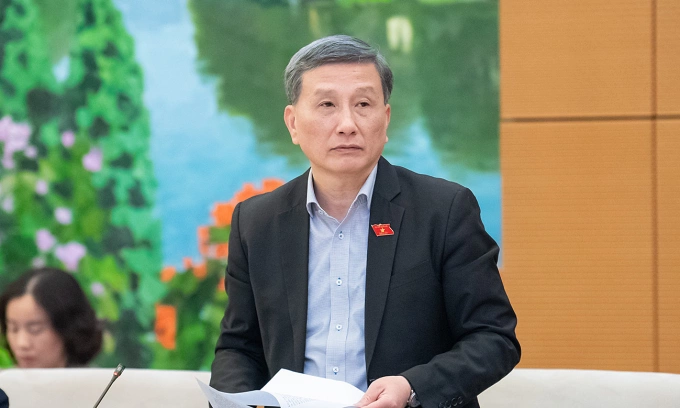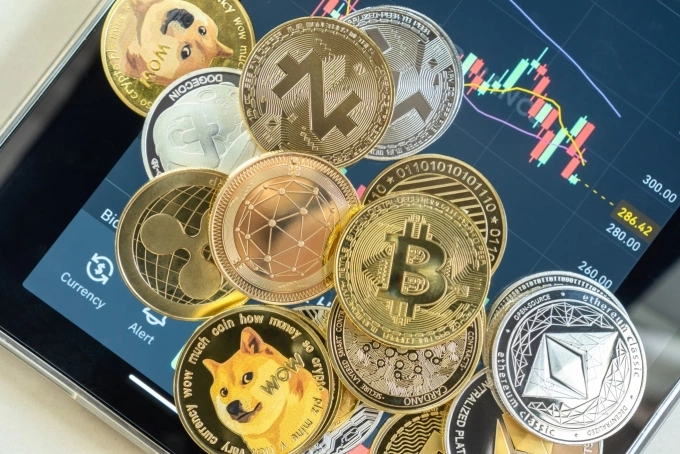On the morning of January 6, the National Assembly Standing Committee gave its opinion on the draft Law on Digital Technology Industry. The draft law defines digital assets as assets as prescribed in the Civil Code, expressed in the form of digital data, created, issued, stored, transferred and authenticated by digital technology in the electronic environment.
Virtual assets are digital assets that can be traded or transferred and can be used for payment or investment purposes. Virtual assets do not include securities, digital forms of legal tender and other financial assets as prescribed by law.
Meanwhile, crypto assets are digital assets created, issued, stored, transferred and authenticated using blockchain technology, distributed ledger technology or other similar digital technology.

Chairman of the Science and Technology Committee Le Quang Huy speaks at the meeting on the morning of January 6. Photo: National Assembly Media
Chairman of the Science and Technology Committee Le Quang Huy, representative of the appraisal agency, assessed that digital assets are a new, complex, developing, and rapidly changing issue. Currently, in the world, this type of asset does not have a complete legal framework and there are still different opinions.
Therefore, the draft law aims to provide a framework for the concept and classification of digital assets based on their intended use, technology, and other criteria. In addition, the Government needs to consider amending the Civil Code, the Law on Electronic Transactions, and the Law on Securities to comply with the provisions on digital assets in the new draft.
Chairman of the Economic Committee Vu Hong Thanh agreed that this is a complicated issue, and there are no unified regulations internationally. Taking Bitcoin as an example, Mr. Thanh said the Government has asked the Ministry of Justice to build a legal basis for this issue. In fact, people are using Bitcoin for transactions. Therefore, he noted that the management of these types of assets must comply with the provisions of the Law on Anti-Money Laundering that is being drafted.
"There are cases of buying Bitcoin in Vietnam but trading abroad and exchanging it for other currencies. I suggest that the drafting and reviewing agencies carefully study whether the scope of regulation is comprehensive and what the legal scope is," he said.
Cryptocurrencies such as Bitcoin, Ethereum... are considered popular virtual assets. However, Vietnam does not have a specific definition. Current regulations only mention the concept of cryptocurrency anchored to legal currency, existing in the form of prepaid bank cards and electronic wallets.
In February 2024, the Government assigned the Ministry of Finance to research and develop a legal framework to ban or regulate virtual assets and organizations providing these asset services, to be completed in May. This is to limit the risks of money laundering and terrorist financing related to this type of asset.
According to data from the Vietnam Blockchain Association (VBA) in September 2023, the value of virtual currency received by Vietnam is equivalent to nearly 91 billion USD in one year (from October 2021 to October 2022). Of which, illegal activities are 956 million USD.





